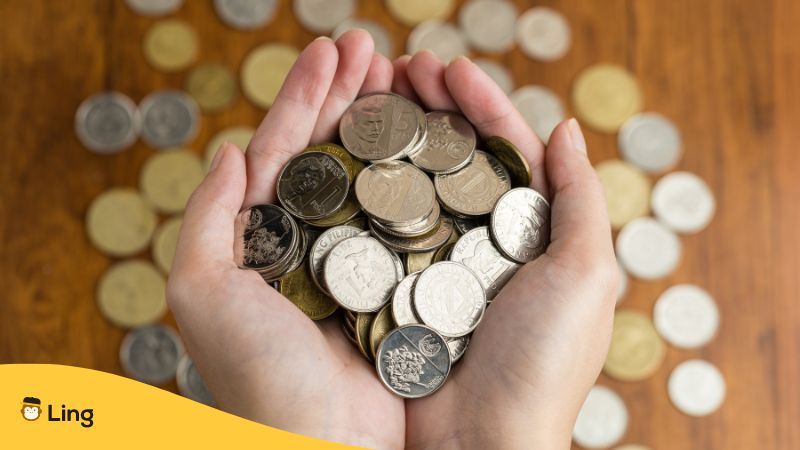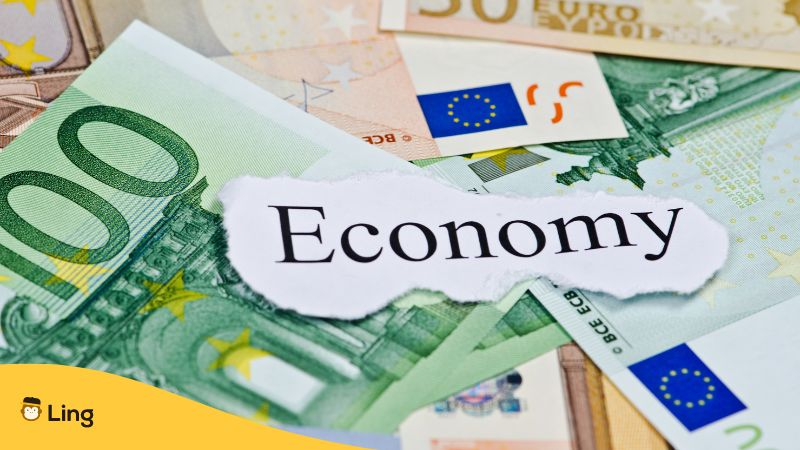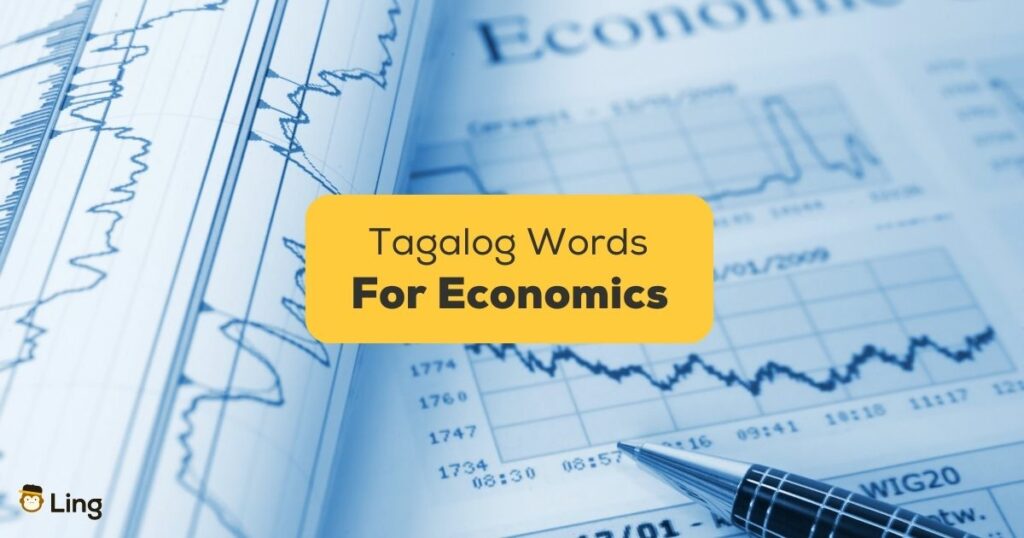Diving into the world of Tagalog words for economics isn’t just about crunching numbers—it’s like unlocking a treasure chest of global savvy! As economies tango and currencies cha-cha, being the Tagalog economics wiz adds that extra sprinkle of awesome to your linguistic toolbox and may even help you professionally. Let’s start!
Economics In Tagalog
Ever scratch your head and wonder what economy or “ekonomiya” in Tagalog is like in the Philippines? Well, this vibrant market is a mix-and-match wonderland of agriculture, manufacturing, services, and even a dash of magic from overseas Filipino workers’ remittances. According to the locals, some of the well-known industries in the country are electronics, outsourcing, tourism, and the superhero-esque business process outsourcing (BPO) sector.
And hey, don’t underestimate the power of agriculture – it’s like the MVP, giving jobs to loads of folks. Sure, there are some pesky party crashers like income inequality, infrastructure hiccups, and red tape, but the Philippines is tough and ready to dance through those challenges.
Essential Tagalog Words For Economics
Money (Pera)
“Money” or “pera” takes the spotlight as the official go-between for trades and the superstar of value. Say hello to the Philippine Peso (PHP), the country’s cool currency, strutting its stuff in centavo segments. And who’s keeping this funky financial dance in check? The Bangko Sentral ng Pilipinas, of course! It is the entity assigned to regulate the groove and make sure the economic rhythm never misses a beat!
Capitalism (Kapitalismo)
Picture goods and services busting out their best moves in a competitive market party, grooving to the beats of supply and demand. This vibrant mix of entrepreneurship and free-market magic doesn’t just make the economy shimmy – it’s the driving force behind innovation, investment, and a glittering heap of wealth accumulation!
Globalization (Globalisasyon)
“Globalization” or “globalisasyon” is like a super cool cosmic web that links countries, businesses, and cultures in a global party! Imagine borders doing the cha-cha as ideas, stuff, and even money boogie freely worldwide. This groovy connection fuels mega-trade starts cultural mashups, and weaves economies into one big, funky global family!
Supply (Suplay)
Supply or “suplay” takes the spotlight as the number of goods and services ready to strut onto the market stage. It’s like the cast of characters in a play, showcasing what producers are all set to offer. This energetic interplay between supply and demand sets the rhythm for prices and shapes the economic dance floor.
Demand (Pangangailangan)
Demand or “pangangailangan” steals the show as the desire and willingness of consumers to snag those goods and services in the limelight. It’s like a crowd cheering for their favorite stars, indicating how much of a product people are itching to grab. This dynamic duo of supply and demand waltzes through the economy, dictating prices and orchestrating the grand performance of markets.
Market (Merkado)
Think of the economy as a gigantic swap meet – that’s a market or “merkado!” It’s where buyers and sellers meet up to trade stuff they love, like cool toys, tasty snacks, and even government stocks. The global market decides how much things cost and what awesome stuff should be made for everyone to enjoy!
Gross Domestic Product (Kabuuang Produkto ng Bansa)
Imagine GDP as a giant economic scoreboard that keeps track of how well a whole country is doing. It’s like counting all the amazing things a country makes and sells – from cars and phones to even haircuts and more. When this scoreboard goes up, it’s like giving the country a high-five for doing an awesome job at making its economy bigger and better!
Trade (Kalakalan)
Imagine trade or “kalakalan” as a huge worldwide trading game, where countries trade the awesome things they’re great at making for stuff they want. It’s like swapping your art skills for yummy cookies from your pals. And guess what? This trading game helps countries get what they need and become friends with others all across the globe!

Other Words Related To Economics In Tagalog
Whether you’re a business ninja gearing up for trade showdowns, an economic detective decoding system secrets, or simply a curious cat eager to crack the financial code, nailing these Tagalog terms is like unlocking a treasure trove of high-fives from locals and insiders.
| English | Tagalog |
|---|---|
| Fiscal Policy | Pampulitikang Patakaran |
| Monetary Policy | Pampinansiyang Patakaran |
| Tariff | Taripa |
| Subsidy | Subsidyo / Tulong na Salapi |
| Scarcity | Kakulangan |
| Perfect Competition | Ganap na Kompetisyon |
| Exchange Rate | Palitan ng Pera |
| Balancing | Pagbabalanse |
| Elasticity | Elastisidad |
| Economic Growth | Ekonomikong Paglago |
| Interest Rate | Porsyento ng Tubo |
| Economic Development | Ekonomikong Pag-unlad |
| Government | Pamahalaan |
| Unemployment | Kakulangan sa Trabaho |
| Microeconomics | Mikroekonomiya |
| Macroeconomics | Makroekonomiya |

Learn The Filipino Language With Ling!
By now, you’ve probably picked up the Tagalog words for “economy” – high five for that! But hold on, do you find yourself itching for more language adventures? Don’t worry if you’re feeling a tad lost; learning a new language is like unlocking a treasure trove of possibilities.
It’s time to check out the Ling app – your trusty language companion on this thrilling journey! No more eye-rolling at textbooks or robotic vocabulary drills. Inside this magical app, you’re not just getting lessons – you’re getting a backstage pass to language mastery. Pronunciation? Check. A new word to discover? Double check! We’re talking about example phrases that roll off the tongue like poetry, audio that tickles your ears, animations that dance to the rhythm of your curiosity, and all the insider tips you need to crack the code of the language you’re after.
So, let’s make learning a language as exciting as a roller coaster ride – minus the motion sickness. Download it now in the App Store or Google Play Store!



































































